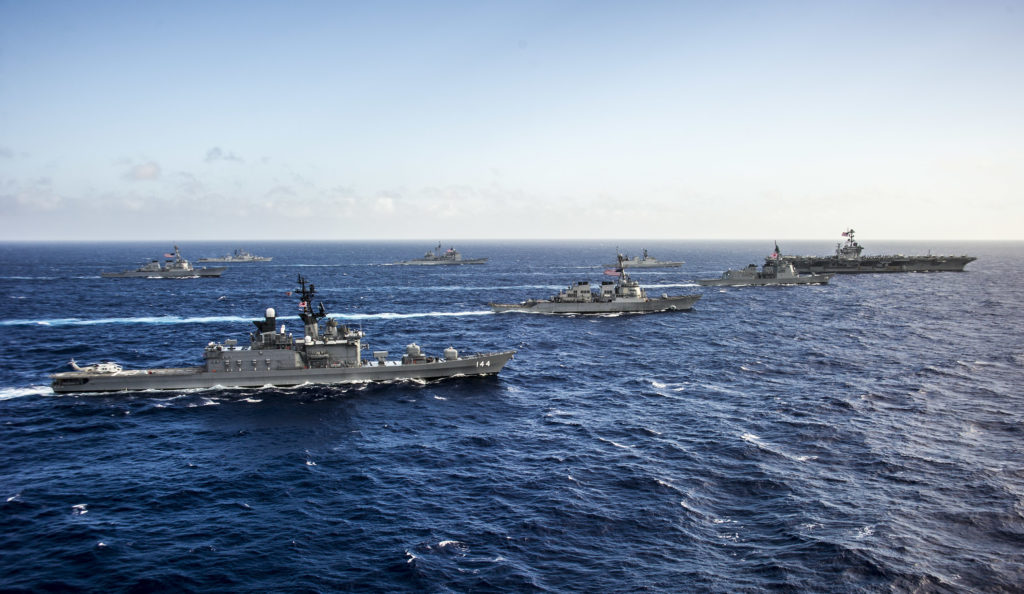The Peninsula
Potential Ramifications of the House’s North Korea Sanctions Act
Published August 21, 2014
Category: North Korea

By Joseph Dahl and Diane Stevenson
Amid Congressional gridlock, the border crisis and a lawsuit against the President, a rather important and potentially consequential bill passed the House without much attention. H.R. 1771, the North Korea Sanctions Enforcement Act of 2014, would put renewed pressure on the Kim regime if successfully passed by the Senate and signed into law by President Barack Obama. Essentially, the objective of H.R. 1771 is to strengthen sanctions in order to cut off most sources of North Korean revenue and to deter external parties from cooperating with the regime until Pyongyang unequivocally gives up its nuclear weapons, makes drastic improvements on human rights, and opens up to transparency and reform.
While H.R. 1771 has merits, the bill is not without its concerns. If signed into law, the most significant ramification could be a more impecunious, and thus desperate, North Korea. Cut off from major sources of revenue, Pyongyang may seek to increase its proliferation of weapons and weapons technology. Andrea Berger of the Royal United Services Institute for Defense and Security Studies, a think-tank, acknowledges that North Korea has a “historical, and possibly continuing, arms relationship” with non-state actors in the Middle East. Furthermore, Ms. Berger suggests that North Korea may potentially pursue new arms deals with Hamas and Hezbollah. Given the current conflicts in the Middle East, as well as North Korea’s past dealings with Syria, Hamas and Hezbollah, the potential for further proliferation by North Korea is a very real possibility should Pyongyang be subjected to the ironclad sanctions of H.R. 1771. Detrimental still would be the development of an arms relationship between North Korea and the Islamic State (IS), which would further damage U.S. security interests in the Middle East.
These scenarios must not be taken lightly by policymakers because the U.S. would be doing a disservice to Israel and other allies in the region if Hamas or any other terrorist organization managed to upgrade or replenish their arsenals with the help of North Korea. H.R. 1771 may be a step in the right direction for U.S. policy toward North Korea, but a two-pronged approach encompassing additional sanctions against North Korea, as well as taking steps to minimize a potential increase in weapons proliferation to the Middle East, would be more preferable to U.S. national security interests.
Such a strategy would go beyond H.R. 1771’s cursory attention to counter-proliferation enforcement, and it would build upon the United States’ Proliferation Security Initiative (PSI)— incorporating both bilateral and multilateral approaches specifically constructed to stymie North Korea’s proliferation capabilities. President Obama should endorse such an approach because H.R. 1771 would be more effective if a comprehensive counter-proliferation enforcement strategy that prioritizes North Korea were established concurrently with increased sanctions.
The United States should take steps to solidify its ability to interdict ships transporting North Korean weapons at sea. U.N. Resolutions related to interrupting proliferation in transit are fairly robust. However, under such Resolutions, member states only allow a search of their vessels at sea, or they divert them to the nearest port for investigation. This can complicate the process and allow time for evidence of proliferation to be destroyed or removed. As a result, the U.S. enhanced its PSI with bilateral Ship Boarding Agreements (SBAs).While the PSI, overall, is an appropriate counter-proliferation measure, it does not obligate other states to participate in counter proliferation measures. For instance, the PSI asks states to “seriously consider providing consent to the boarding and searching of their flag vessels.” SBAs address this problem by requiring partner-states to allow the U.S. to board ships on extremely short-notice. Currently, this program encompasses only 11 states, amounting to roughly 52% of worldwide shipping. The U.S. should seek to increase the number of SBAs because doing so would enhance its ability to interdict arms at sea. SBAs with Singapore, Greece and Hong Kong, for example, would cover an additional 18% of the world’s shipping, and their addition would allow the U.S. to board roughly 70% of international ships. While it would be difficult for the U.S. to enact SBAs with Singapore, Greece and Hong Kong, Washington should court them nonetheless, as well as other states. Increasing the amount of cargo ships that the U.S. can board would greatly enhance its ability to curb North Korean proliferation.
The enhanced sanctions of H.R. 1771, combined with more robust counter-proliferation measures that enhance the PSI, would dramatically inhibit North Korea’s ability to proliferate weapons. In so doing, the U.S. could further raise the costs of the regime’s nuclear weapons program and its human rights violations by cutting off an additional source of illicit revenue, which a more desperate North Korea may seek through further arms sales to non-state actors in the Middle East.
Joseph Dahl is currently working on a Masters in Public Policy from University of Maryland. Diane Stevenson is currently finishing her Masters of Arts in Security Policy Studies at George Washington University. The views expressed here are the authors alone.
Photo from U.S. Pacific Fleet’s photostream on flickr Creative Commons.
